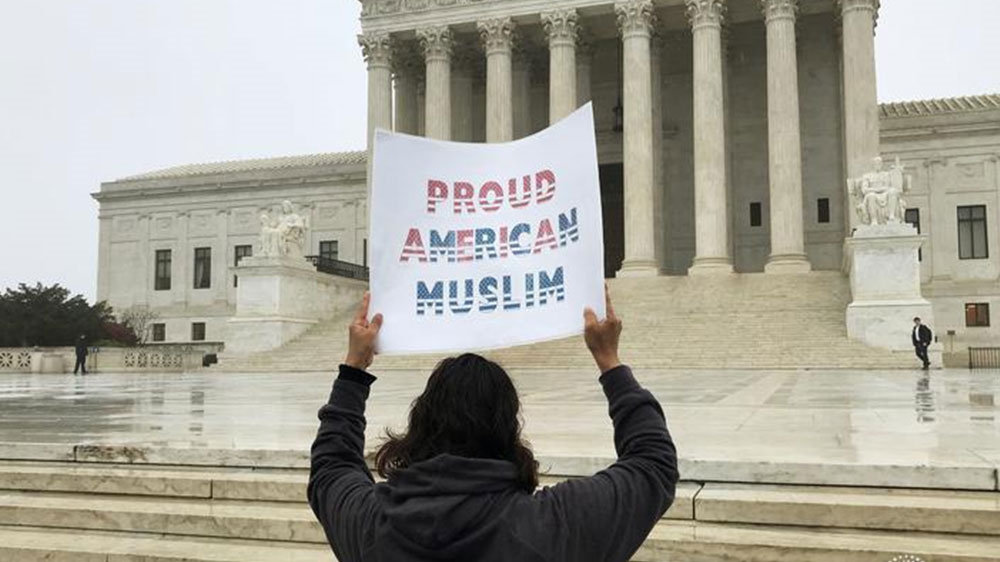Trump’s expanded travel ban: Which countries are affected?
Trump added 6 nations to his travel ban. Here is a look at which countries are included and what the restrictions mean.

US President Donald Trump has expanded his controversial travel ban, often referred to by critics as a Muslim ban, to target citizens from six additional countries.
The move on Friday was slammed by immigrant advocates and critics who say the policy discriminates against Muslims and others.
Keep reading
list of 3 itemsMuslim Americans testify on effects of Trump’s travel ban
US Democrats introduce bill to repeal Trump’s travel ban
The announcement comes three years after Trump sparked outrage by signing an executive order suspending immigration from several Muslim-majority countries. That travel ban, which caused chaos and protests at airports, was challenged in the courts and eventually amended to target five Muslim-majority countries – Yemen, Syria, Iran, Libya and Somalia – as well put restrictions on nationals from Venezuela and North Korea.
The Trump administration maintains that the six additional countries – Eritrea, Kyrgyzstan, Myanmar, Nigeria, Sudan and Tanzania – failed to meet US security and information-sharing standards, which necessitated the new restrictions. The problems officials cited ranged from subpar passport technology to a failure to sufficiently exchange information on “terrorism” suspects and criminals. The restrictions on the six new countries will take effect on February 21.
Here is a look at which countries are included in the expanded travel ban and what restrictions have been put in place.
Eritrea, Kyrgyzstan, Myanmar and Nigeria
The United States will suspend the issuance of visas that can lead to permanent residency for nationals of Eritrea, Kyrgyzstan, Myanmar and Nigeria, acting Secretary of Homeland Security Chad Wolf said on Friday.
Non-immigrant visas will not be affected. According to the State Department, non-immigrant visas include those for tourism, short-term business, medical purposes, education, and journalism, among other types of visas.
During December, for example, about 650,760 non-immigrant visas were granted worldwide.
Immigrant visas include those for spouses, certain family members, certain sponsored employment and other purposes.
The Trump administration said there are exceptions to the restrictions.
Sudan and Tanzania
The US government will also stop issuing “diversity visas” to nationals of Sudan and Tanzania, according to a presidential proclamation.
These visas – which Trump has criticised in the past – are available by lottery for applicants from countries with low rates of immigration to the US.
The State Department uses a computer drawing to select people from around the world for up to 55,000 diversity visas. Nigeria is already excluded from the lottery along with other countries that had more than 50,000 natives immigrate to the US in the previous five years.

Yemen, Syria, Iran, Somalia and Libya
The existing version of the ban includes the Muslim-majority nations of Iran, Libya, Somalia, Syria and Yemen. North Korea and Venezuela also face visa restrictions, but those measures affect relatively few travellers.
The current ban suspends immigrant and non-immigrant visas to applicants from the affected countries, but it allows exceptions, including for students and those who have established “significant contacts” in the US.
These restrictions will remain in place, the proclamation said.
North Korea and Venezuela
Most North Koreans are barred from entering the US.
The Venezuelan ban mostly affects government officials and their family members.